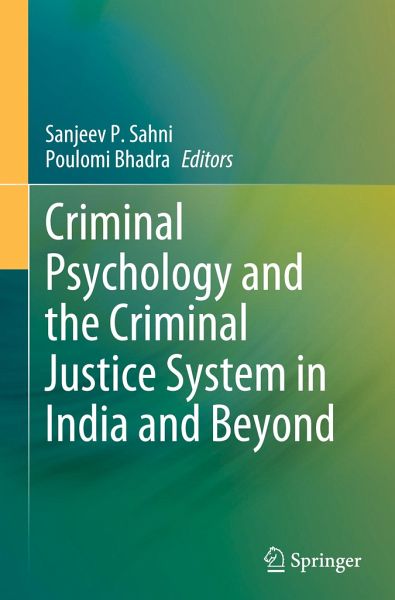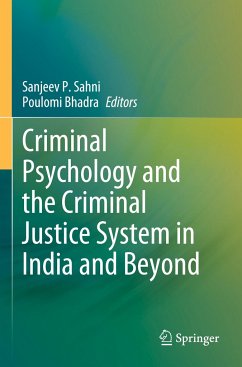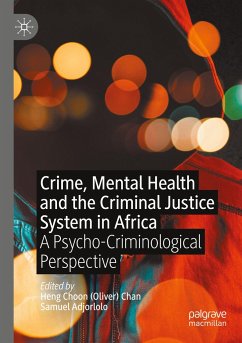
Criminal Psychology and the Criminal Justice System in India and Beyond

PAYBACK Punkte
53 °P sammeln!
This book provides a focused and comprehensive overview of criminal psychology in different socio-economic and psycho-sociological contexts. It informs readers on the role of psychology in the various aspects of the criminal justice process, starting from the investigation of a crime to the rehabilitation or reintegration of the offender. Current research in criminology and psychology has been discussed to understand the minds of various offenders, how to interact with them during investigation and conviction effectively and how to bring about positive changes in various stages of the criminal...
This book provides a focused and comprehensive overview of criminal psychology in different socio-economic and psycho-sociological contexts. It informs readers on the role of psychology in the various aspects of the criminal justice process, starting from the investigation of a crime to the rehabilitation or reintegration of the offender. Current research in criminology and psychology has been discussed to understand the minds of various offenders, how to interact with them during investigation and conviction effectively and how to bring about positive changes in various stages of the criminal justice process-investigation, prosecution, incarceration, rehabilitation-to increase the efficacy of the correctional system and improve public confidence in the justice system. It thoroughly addresses the bigger issues of holistically reducing the increase in crime rates and susceptibility in society. Each chapter builds on leading scholarship in this field from Western scholars and supplements these theories with research findings from a South Asian perspective, particularly in the Indian criminal justice system. This book successfully encapsulates the foundations of criminal psychology literature while incorporating interdisciplinary avenues of study into criminal behaviour and legal psychology, bringing into the provincial discourse lacunas of the justice system and avenues for alternative correctional and rehabilitative programs.














